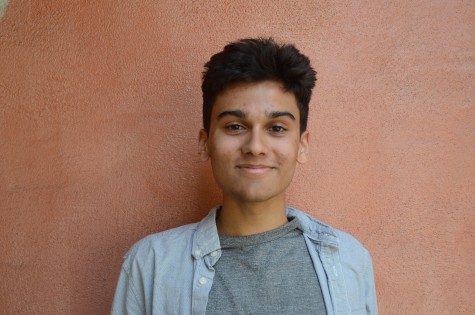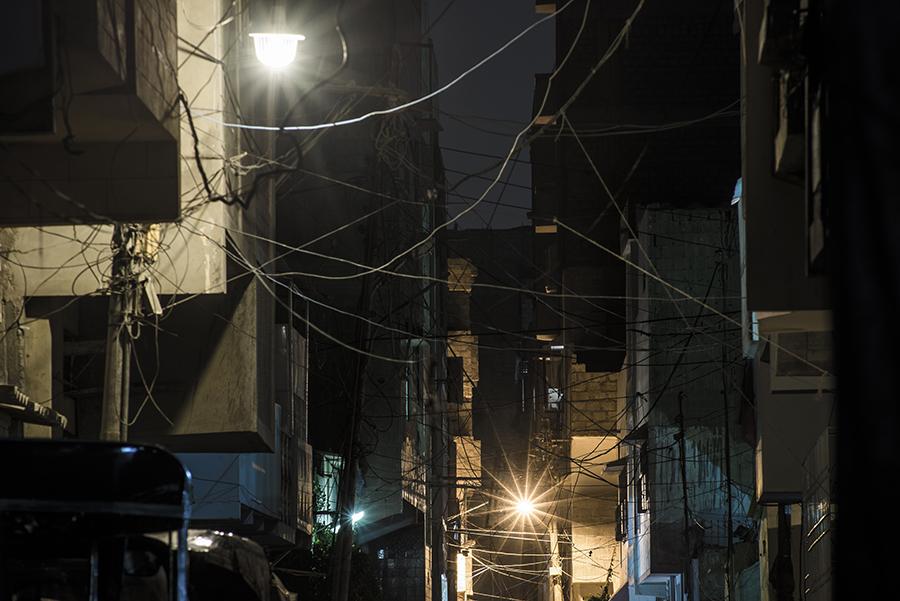The Middle East: A Muslim perspective
A common occurrence, here cables are being used to steal electricity by those who cannot afford it. Many people in these regions are deprived of infrastructure and basic necessities, all amidst pockets of affluence.
During my travels, I discovered firsthand how media reports can widely circulate inaccuracies, sometimes with unfavorable consequences. In July of 2011, shortly after bin Laden was assassinated, I happened to be passing through Abbottabad, and yes, curiosity got the better of me.
What I saw differed greatly from the media accounts the world got to hear. The compound was situated in a rundown neighborhood, six or seven minutes from the posh Pakistani army quarters. Similar to the neighboring complexes, it was an austere, concrete multistory affair, sitting right off the unpaved dirt path. Barbwire atop looming walls encompassed the perimeter. Most crucially, unlike the State Department’s reports, the house was quite nondescript.
It was probably the last area the Pakistani military would even take a look.
Today, media hysteria and politicians are igniting heated discourse surrounding the ISIS takeover of Iraq and Syria. What we really need is some clarity.
In 2003 our old favorite W., through a skillful blend of faux confidence and overblown rhetoric, took America into Iraq for the second time.
After more than a million deaths and the decimation of a country, we didn’t really find any WMD. Or anything related to September 11th. But we are discovering now what happens when a stable dictatorship, of a state long embroiled by age-old sectarian disputes, is toppled.
And it’s imperative that this time, we finally learn.
Here’s some context. After the Soviets’ 1979 invasion of Afghanistan, the United States dispatched copious amounts of military assistance to the mujahadeen. Back then, it was in the name of Communist containment. We propped up the then-“freedom fighters” with American aid and weapons, and over decades those arms circulated across the region through porous borders.
Yes, we tend to forget that we helped create the Taleban and al-Qa’idah.
“Let’s remember here, the people we are fighting today, we funded 20 years ago,” said Secretary of State Hillary Clinton in a congressional testimony in April 2009. “There’s a very strong argument, which is it wasn’t a bad investment to end the Soviet Union, but let’s be careful what we sow, because we will harvest.”
Nevertheless, talk of arming Syrian rebels is still, to Congress, apparently a pragmatic approach. Yet it’s not a surprise, given that American firearms manufacturers have lobbyists in Congress.
Young, mainly illiterate men join militant groups only because they have known nothing else in their destitution. Justification for their cause is fortified by U. S. actions in the Muslim world. We spend billions upon billions of dollars in military aid to these countries, only escalating conflicts. Militant groups receive American weapons through our allies.
Today, these weapons have pervaded countries as far away as Pakistan, where security is a pressing issue. Pakistan has lost 49,000 lives to terrorist attacks alone since September 11, 2001, according to the Express Tribune. When I am in Karachi, I hear people reminisce of a time when there was no militant presence, no armed street thieves, nor the need for ordinary houses to be equipped with razor wire, security guards, and CCTV surveillance.
With such weapons, small-scale movements are now instigating violence, casting doubt upon the legitimacy of the state by establishing shadow governments. This discord, mostly Sunni-Shia, is intensified by proxy wars. The Sunni group ISI (now ISIS), a reincarnation of al-Qa’idah, is funded mainly by the Saudis.
Yes, Saudi Arabia happens to be a close American ally.
ISIS has joined Syrian insurgents in attempting to topple the Alawite Shia regime of President Assad. In Syria, the group has been pushing back against Hizbollah, a group advocating Assad and largely financially supported by Iran. The moderate rebels, the United States’ potential allies, share a common interest with ISIS.
So after years of funding our enemies and witnessing the emergence of ISIS that we made possible, the last person you’d expect to utter a word now is the architect of the 2003 invasion that started it all.
Yes, Dick Cheney has resurfaced.
In an op-ed with his daughter in the Wall Street Journal, he disparages President Obama’s handling of the situation.
“Rarely has a U.S. president been so wrong about so much at the expense of so many,” Cheney writes, apparently unaware of the spectacular irony. “This president is willfully blind to the impact of his policies.”
It might have been an apt piece had it instead been describing W. and his ever-faithful sidekick. But at least Mr. Bush has the courtesy to remain silent.
The United States needs to set aside its parochial, geopolitical interests. Investigating a solution to the crisis is understanding the protracted, complex disputes which sustain violence and perpetuate ethnic dissensions. The delicate situation is only exacerbated by our reckless ventures into the region. It is certainly no place for American firearms companies to profit or for Exxon to strike business deals.
The real solution is education.
As I’ve witnessed in Pakistan, governments rife with corruption misallocate tax funds. Only those who can afford private schooling attain a proper education. Yet few in power, locally nor internationally, seem to recognize that investment in proper schools is crucial to broadening narrow perspectives and mitigating radicalization.
In Karachi, I work every summer for my grandparents’ organization, which provides low-income groups with economical houses, equips them with skills, and establishes local schools. This is a surefire way to combat militancy, but it can’t be done exclusively by the private sector.
To the amusement of my grandmother, a senior official from the Pakistani Department of Education called to inform her that he was excited about their work, and that the department might even assist them in their endeavor. It’s a shame that he has, even now, not fully understood what his job title really means.
The GOP may criticize Obama for his indecisive tendencies on intervention, but it’s a step in the right direction. He just needs to take action now. Peaceful action.
Thanks for playing, Mr. Cheney. Your time has come and gone, and on this one, history speaks for itself.
—
*An earlier version of this article misstated the time period when the author visited Abbottabad. May 2011 was when Osama bin Laden was killed, not when the writer visited the site two months later.

Shay Lari-Hosain (12) is the Editor-in-Chief and co-founder of Wingspan Magazine. Shay has interviewed 2013 Nobel Laureates, authors like Khaled Hosseini...




![LALC Vice President of External Affairs Raeanne Li (11) explains the International Phonetic Alphabet to attendees. "We decided to have more fun topics this year instead of just talking about the same things every year so our older members can also [enjoy],” Raeanne said.](https://harkeraquila.com/wp-content/uploads/2025/10/DSC_4627-1200x795.jpg)


















![“[Building nerf blasters] became this outlet of creativity for me that hasn't been matched by anything else. The process [of] making a build complete to your desire is such a painstakingly difficult process, but I've had to learn from [the skills needed from] soldering to proper painting. There's so many different options for everything, if you think about it, it exists. The best part is [that] if it doesn't exist, you can build it yourself," Ishaan Parate said.](https://harkeraquila.com/wp-content/uploads/2022/08/DSC_8149-900x604.jpg)




![“When I came into high school, I was ready to be a follower. But DECA was a game changer for me. It helped me overcome my fear of public speaking, and it's played such a major role in who I've become today. To be able to successfully lead a chapter of 150 students, an officer team and be one of the upperclassmen I once really admired is something I'm [really] proud of,” Anvitha Tummala ('21) said.](https://harkeraquila.com/wp-content/uploads/2021/07/Screen-Shot-2021-07-25-at-9.50.05-AM-900x594.png)







![“I think getting up in the morning and having a sense of purpose [is exciting]. I think without a certain amount of drive, life is kind of obsolete and mundane, and I think having that every single day is what makes each day unique and kind of makes life exciting,” Neymika Jain (12) said.](https://harkeraquila.com/wp-content/uploads/2017/06/Screen-Shot-2017-06-03-at-4.54.16-PM.png)








![“My slogan is ‘slow feet, don’t eat, and I’m hungry.’ You need to run fast to get where you are–you aren't going to get those championships if you aren't fast,” Angel Cervantes (12) said. “I want to do well in school on my tests and in track and win championships for my team. I live by that, [and] I can do that anywhere: in the classroom or on the field.”](https://harkeraquila.com/wp-content/uploads/2018/06/DSC5146-900x601.jpg)
![“[Volleyball has] taught me how to fall correctly, and another thing it taught is that you don’t have to be the best at something to be good at it. If you just hit the ball in a smart way, then it still scores points and you’re good at it. You could be a background player and still make a much bigger impact on the team than you would think,” Anya Gert (’20) said.](https://harkeraquila.com/wp-content/uploads/2020/06/AnnaGert_JinTuan_HoHPhotoEdited-600x900.jpeg)

![“I'm not nearly there yet, but [my confidence has] definitely been getting better since I was pretty shy and timid coming into Harker my freshman year. I know that there's a lot of people that are really confident in what they do, and I really admire them. Everyone's so driven and that has really pushed me to kind of try to find my own place in high school and be more confident,” Alyssa Huang (’20) said.](https://harkeraquila.com/wp-content/uploads/2020/06/AlyssaHuang_EmilyChen_HoHPhoto-900x749.jpeg)



